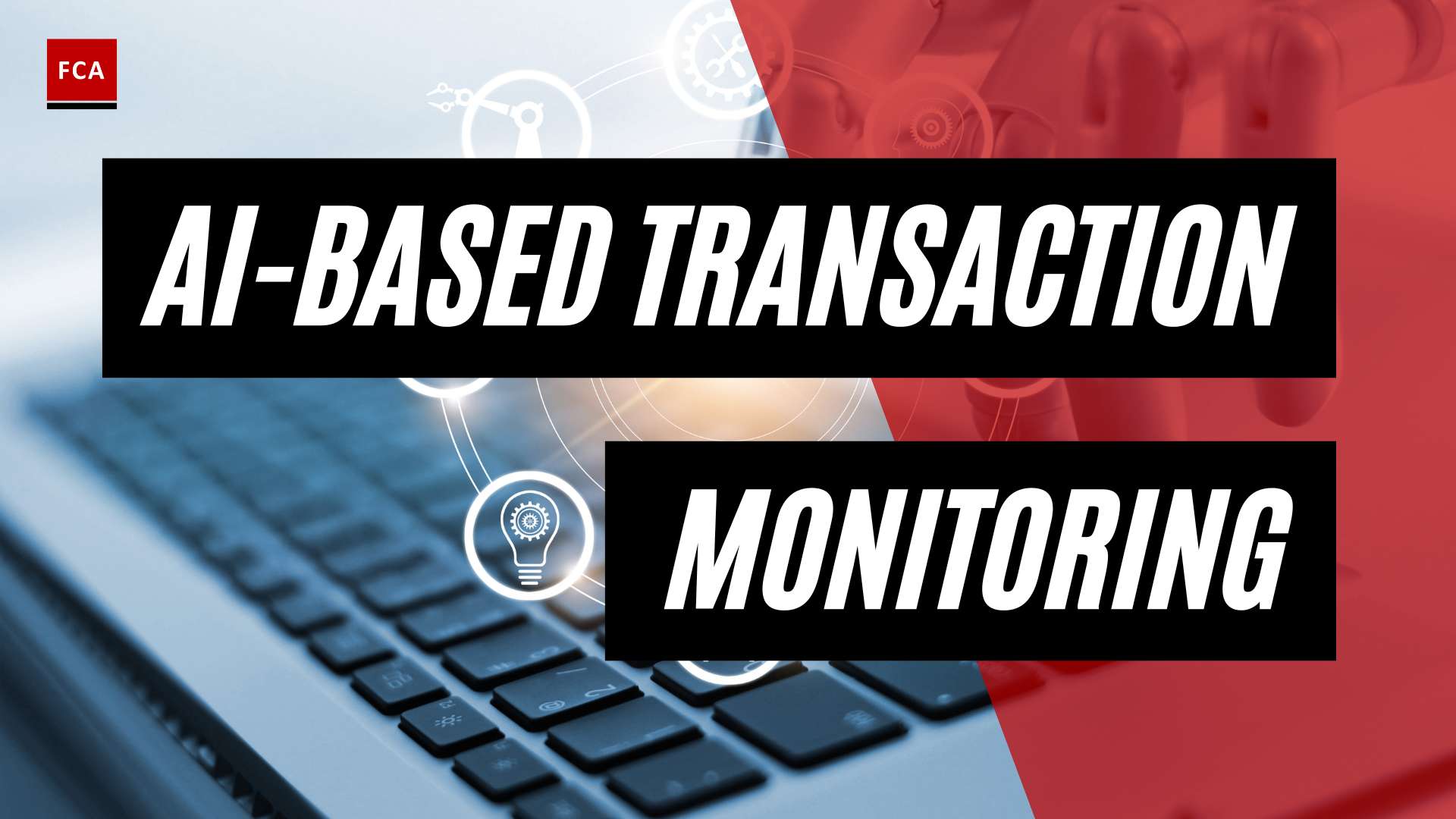Understanding AML Training Courses
In the realm of financial crime prevention, AML training courses play a pivotal role. These courses arm professionals in the financial industry with the essential knowledge and skills needed to combat money laundering effectively.
What is AML Training?
Anti-Money Laundering (AML) training refers to educational courses designed to equip professionals with the necessary knowledge to recognize, prevent, and report money laundering activities. These courses cover various topics such as Anti-Money Laundering (AML), Know Your Customer (KYC), Countering the Financing of Terrorism (CFT), the USA Patriot Act, and the Bank Secrecy Act (BSA).
AML training caters to professionals in the financial services industry, such as bankers, compliance officers, risk managers, AML compliance officers, and anyone interested in a career in AML compliance. For more information on the types of AML training available, visit our pages on aml training programs and aml certification training.
Importance of AML Training
AML training is vital in the fight against financial crime. By equipping professionals with the knowledge to recognize money laundering transactions, detect financial crimes, and maintain compliance with AML regulations, these courses help protect organizations from exposure to financial risks.
Furthermore, AML training is not just beneficial—it’s often required. Regulatory bodies such as FINRA have Continuing Education requirements for registered representatives, which may include Anti-Money Laundering (AML) training courses (FINRA).
Beyond compliance, AML training courses provide professionals with a comprehensive understanding of the current AML landscape, including emerging AML threats, AML industry trends, and AML regulatory updates. This knowledge can prove invaluable in an environment where financial crimes are continually evolving and growing in complexity.
In conclusion, AML training courses are a critical component in the defense against financial crimes. By fostering a deeper understanding of money laundering mechanisms and regulatory requirements, these courses enable professionals to take proactive measures in preventing financial crimes, ultimately safeguarding their organizations from potential risks and penalties.
Key Components of AML Training
To effectively combat money laundering and other financial crimes, it is crucial to understand the key components of AML training courses. These courses focus on enabling participants to recognize suspicious transactions, develop risk assessments, and maintain compliance with AML regulations.
Recognizing Money Laundering Transactions
Recognizing suspicious transactions is an essential skill taught in AML training. This involves the ability to identify red flags and unusual patterns in financial transactions that could indicate money laundering or other financial crimes. As stated by the Financial Crime Academy, an effective AML certification equips professionals with these necessary skills, enabling them to act proactively in preventing financial crimes. For detailed insights and case studies, refer to our AML case studies.
Developing Risk Assessments
Risk assessments are a critical component of any AML compliance program. Financial institutions are required to implement Customer Risk Assessments, particularly during the onboarding process, to gather data on aspects like types of products and services, expected transaction patterns, geographic locations, and high-risk individuals. This information aids in identifying potential risks and vulnerabilities, thus allowing institutions to implement necessary controls to mitigate these risks. Explore our AML training materials for more on developing risk assessments.
Maintaining Compliance with AML Regulations
Maintaining compliance with AML regulations is another key aspect of AML training. Professionals are taught the importance of regulatory understanding, and how to establish a compliance culture at all levels of the organization. Regular independent audits are a crucial part of this, with larger institutions in high-risk areas often requiring more frequent audits to ensure compliance. Additionally, AML training should be tailored to reflect the position of the individuals being trained, as each role has a crucial part in anti-money laundering processes.
Stay updated with our AML regulatory updates to ensure your compliance measures align with the latest AML laws and regulations.
These key components provide a comprehensive understanding of what to expect from AML training programs. By mastering these areas, professionals can effectively contribute to their organization’s efforts in preventing money laundering and other financial crimes.
AML Training
The Financial Crime Academy (FCA) offers AML training courses that provide professionals with essential AML knowledge, including understanding how the financial system can be exploited by criminals, recognizing red flags of suspicious activity, and understanding the regulatory environment.
FCA provides AML training courses that cover a wide range of topics, such as customer due diligence, beneficial ownership, sanctions compliance, and risk assessment methodologies. These courses aim to equip professionals with the necessary knowledge and skills to combat financial crimes effectively. FCA’s training materials can be accessed as part of their AML certification training program.
Specialized AML Topics
To effectively combat money laundering activities, professionals must delve into specialized AML topics. These topics provide a more granular understanding of various aspects of anti-money laundering, equipping professionals with the knowledge they need to detect and prevent financial crimes. This section discusses three such specialized topics: customer due diligence, beneficial ownership, and sanctions compliance.
Customer Due Diligence
In the realm of anti-money laundering, customer due diligence plays a pivotal role. Financial institutions are required to implement customer risk assessments, especially during the onboarding process. This involves gathering data on the types of products and services customers use, expected transaction patterns, geographic locations, and the status of high-risk individuals. This process forms a critical step in any AML compliance program.
Through AML training courses, professionals can learn how to conduct customer due diligence effectively. They can understand how to identify suspicious activities, manage high-risk customers, and adhere to best practices in customer risk assessment.
Beneficial Ownership
Understanding beneficial ownership is another key component of AML training. Beneficial ownership refers to individuals who enjoy the benefits of ownership in a company, even though the title of the property is in another name. Uncovering the beneficial owner can be a crucial step in detecting and preventing money laundering activities.
AML training courses can equip professionals with the skills to identify beneficial owners, understand the risks associated with beneficial ownership, and implement measures to manage these risks. For more insights on this topic, refer to our AML certification training.
Sanctions Compliance
Sanctions compliance is another specialized AML topic that professionals need to understand. Sanctions are political and economic decisions that are part of diplomatic efforts by countries, multinational organizations, or the United Nations against countries or organizations. Compliance with these sanctions is crucial to prevent financial crimes.
Through AML training, professionals can understand the complexities of sanctions compliance. They can learn how to navigate the changing landscape of sanctions, understand the implications of non-compliance, and implement measures to ensure compliance.
These specialized topics provide a deeper understanding of the intricacies involved in preventing money laundering. As financial crimes become more sophisticated, professionals need to stay updated with these specialized topics. This is achievable through continuous learning and enrolling in AML training programs.
AML Training Frequency and Importance
In the ever-evolving landscape of financial crimes, keeping up with the latest trends, typologies, and regulatory changes is vital. Regular and role-specific AML training courses are key components of a robust anti-money laundering program.
Recurrent AML Training
AML training courses are typically recommended to be taken annually, with some companies opting for semi-annual training to ensure compliance with regulations and best practices. Regular AML training is essential for employees in the financial sector to recognize and prevent money laundering activities, thereby reducing the risk of financial crimes.
The frequency of AML training ensures that employees stay up-to-date with the latest AML industry trends and regulatory updates. This enables them to adapt their preventive measures accordingly and improve their proficiency in identifying suspicious activities. For a deeper understanding of the practical applications, employees can review AML case studies.
Customized AML Training for Roles
Companies are encouraged to provide comprehensive AML training that is tailored to the specific roles and responsibilities of their employees, enhancing the effectiveness of their anti-money laundering measures and promoting a culture of compliance within the organization.
AML training should reflect the position of the individuals being trained, such as reception staff, solicitors, managers, and compliance officers, who each have a crucial role in anti-money laundering processes (Source). Role-specific training allows employees to understand their unique responsibilities in preventing money laundering and ensures they are equipped with the necessary skills and knowledge to perform their duties effectively.
Whether it’s through AML training videos or using AML training materials, it’s important to choose the right AML training programs or AML certification training that meets the needs of your organization and keeps your team informed about emerging AML threats.
AML Certifications
In the field of Anti-Money Laundering, acquiring relevant certifications is a significant step towards establishing oneself as a competent professional equipped to tackle financial crimes. It strengthens one’s expertise in AML regulations, and the detection and prevention of money laundering activities. This section will delve into one such certification – the Certified Anti-Money Laundering Specialist (CAMS), and shed light on the benefits of obtaining AML certifications.
Certified Anti-Money Laundering Specialist (CAMS)
The Certified Anti-Money Laundering Specialist (CAMS) certification is a globally recognized credential in the AML field. It is considered one of the most respected certifications, demonstrating an individual’s proficiency in AML regulations and their capability to detect and deter money laundering activities.
Attaining the CAMS certification equips professionals with the necessary knowledge and skills to identify and prevent money laundering activities, protect organizations from financial risks, and contribute to the overall integrity of the financial system.
This certification requires individuals to stay updated with the latest trends, typologies, and regulatory changes in money laundering activities. This ongoing professional development ensures that certified professionals remain effective in combating financial crimes and are equipped to adapt to emerging threats and evolving regulatory requirements.
Benefits of AML Certifications
Holding an AML certification, such as CAMS, brings numerous benefits. Not only does it enhance career prospects and open doors to job opportunities in the AML field, but it also provides professionals with a competitive edge in the job market. Employers often prioritize candidates with recognized certifications in AML, leading to higher salaries and increased job security.
AML certifications demonstrate a commitment to ethical business practices and compliance with AML regulations. They enhance the reputation and credibility of professionals and organizations in the financial industry.
In addition, these certifications validate the expertise and competence of professionals in the AML field. They serve as a benchmark for employers and clients to assess the knowledge and skills of individuals involved in AML compliance and risk management.
As a professional in the field of compliance, risk management, or anti-money laundering, consider obtaining AML certifications like CAMS as part of your career development plan. For more information on AML training courses, visit our aml training programs or check out our aml certification training.
Emerging Threats in AML
As financial crime continues to evolve, so do the methods to combat it. Two key areas of focus in modern AML training courses are the rise of digital transactions and the global context of money laundering.
Digital Transactions and AML
In today’s digital age, the rise of online transactions presents new challenges for anti-money laundering efforts. To address this, many AML training programs, like the 2024 AML refresher course by LIMRA, focus on “Knowing Your Customer in a Digital World”. This course emphasizes the risks related to digital and online transactions, identity compromise, high-risk activities, and the red flags of money laundering. It also highlights the importance of Suspicious Activity Reports (SARs) in flagging potential illicit activities. Additionally, the course covers anti-money laundering rules, Know Your Customer practices, activity monitoring and reporting, and identification of red flags.
The use of digital currencies like Bitcoin has also introduced new complexities into the fight against money laundering. AML training courses now often include segments on understanding and detecting illicit activities involving cryptocurrencies.
AML in a Global Context
Money laundering is a global issue, and understanding its international dimensions is crucial for AML professionals. The UK, for instance, is the second-largest money-laundering hotspot in the world, with approximately £88 billion laundered through UK organizations annually. This illicit activity funds terrorist activities and causes damage to the UK economy.
In response, the UK has implemented anti-money laundering regulations that require businesses in the regulated sector, such as banks, accountants, estate agents, law firms, and casinos, to implement controls to prevent financial crime, money laundering, and terrorist financing.
On a global scale, the International Monetary Fund (IMF) works towards preventing money laundering and maintaining financial security. Together with organizations like FATF, the IMF is a key player in combating financial crimes.
AML plays a pivotal role in reducing crimes by blocking criminals and terrorists from using illegal money for illicit operations. By masking criminal activities and preventing illegal funds from entering financial systems, AML contributes significantly to reducing financial crimes like tax fraud, corruption, and illicit trade.
In conclusion, the dynamic nature of financial crime necessitates that AML professionals stay updated on emerging threats. AML training courses play a crucial role in this, equipping professionals with the knowledge and skills to adapt to new challenges. Whether it’s understanding the intricacies of digital transactions or navigating the global landscape of money laundering, AML training courses provide invaluable learning opportunities. To stay updated on the latest trends and developments in the field, check out our resources on aml industry trends, aml regulatory updates, and aml case studies.








